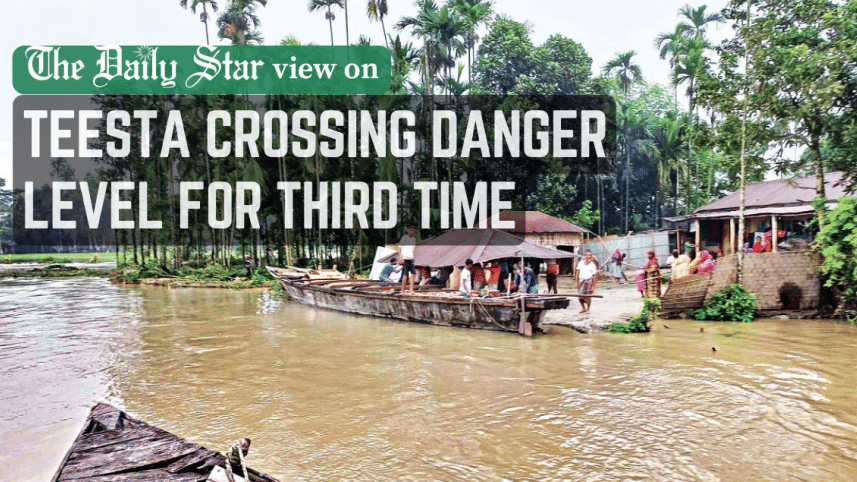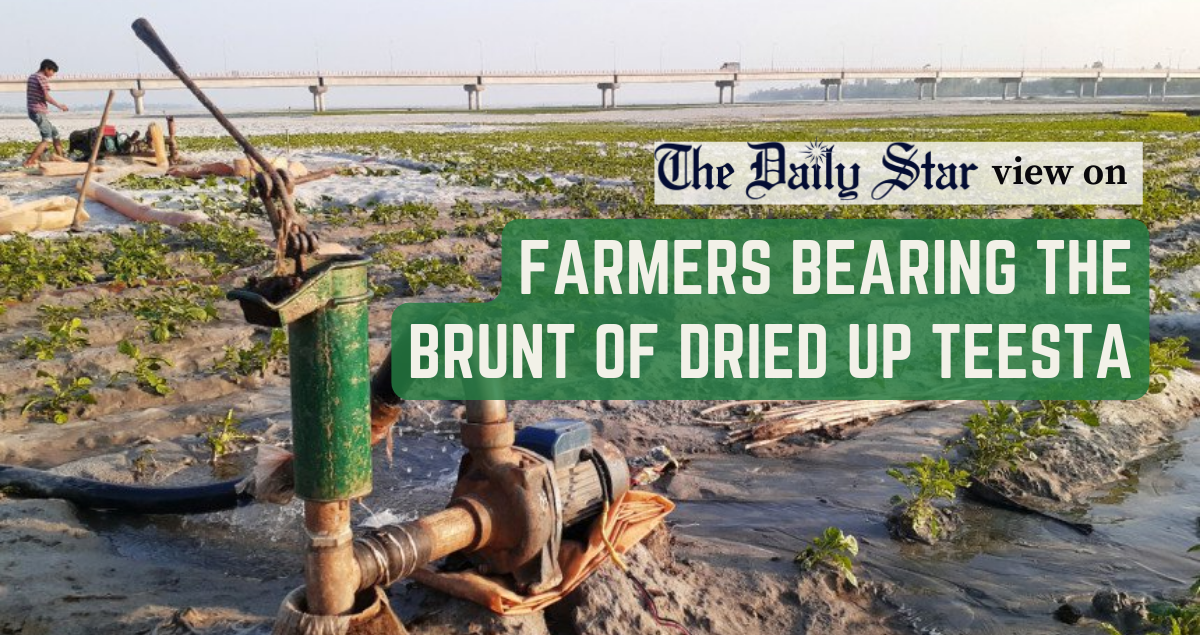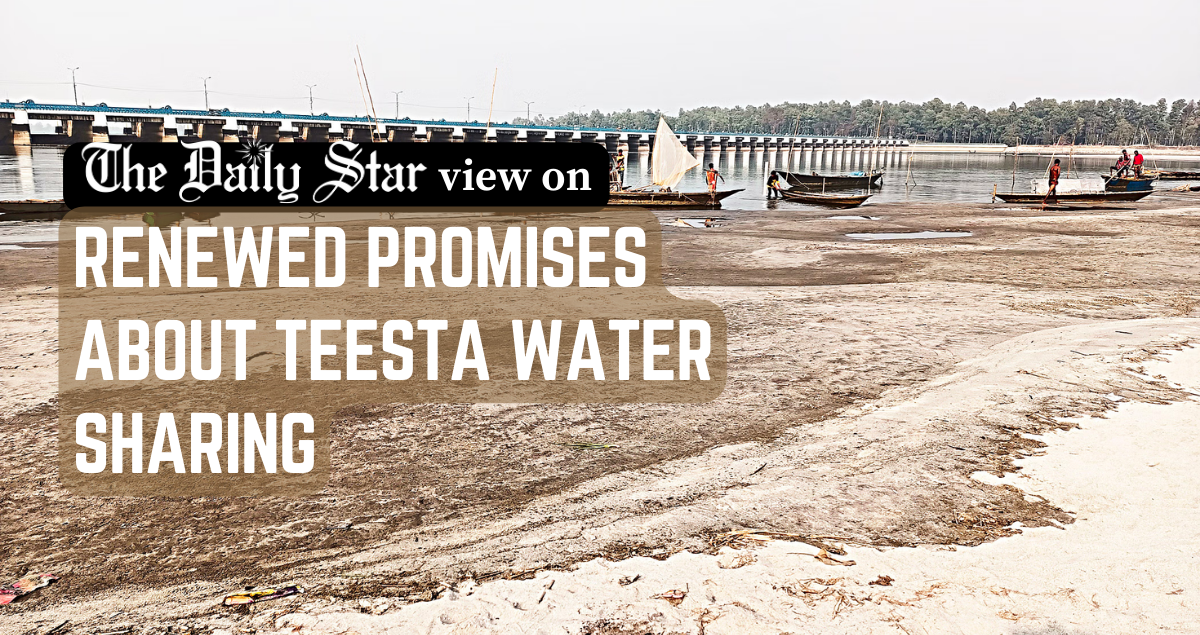Teesta flooding should be a wake-up call

The recent flash flood in the Teesta basin in Bangladesh makes us wonder how much worse the situation must get for our farmers and communities living in the area before we revisit the unfulfilled promise of the Teesta agreement. It has been 12 years of futile reassurances from India in signing the Teesta water-sharing treaty, and decades of continuous havoc on the environment and millions of people in Bangladesh. Now, with the increasing threat of climate change, it is more important than ever for Bangladesh to go beyond stated goodwill to finally resort to international policy frameworks and laws to ensure that transboundary rivers are shared equitably.
As of August 27, 2023, hundreds of chars and villages in Kurigram and Lalmonirhat are flooded, millions are stranded, scores of houses, schools, dams and roads are destroyed, and vast agricultural lands and countless livestock are lost. On August 24, India reportedly opened all floodgates at the Gajaldoba barrage following heavy rains in the upstream region, which is the primary cause of the scale and rapid intensity of this flood. Since the construction of the Teesta barrage, the river remains dried up on the Bangladesh side almost throughout the year, which fuels a vicious cycle of stored sediments, accumulation of silts and chars, encroachments, and ultimately erosions caused by flash floods when the floodgates are opened. Dams, barrages and other disruptions to the natural flow of the river in West Bengal, and also Sikkim, have thus directly been affecting millions of people and a vast riverbank in our country.
Despite Bangladesh's persistent push for a mutually beneficial water treaty, and India's repeated reassurances, the obvious step towards a solution has been put aside, mostly by the Indian side. Earlier this year, there were reports of West Bengal's push for two more canals under the Teesta Barrage project, which can further deteriorate the already dire situation on our end. While the recommendation from an Indian parliamentary committee to its government to "initiate meaningful dialogue with Bangladesh on a regular basis" comes as a welcome move, we can't help but question the actual goodwill for a solution in the near future, given that Dhaka is yet to even receive an answer to its query about the canals.
It's time for the Bangladesh government to finally put its foot down regarding the Teesta. And overall, Bangladesh should consider signing and advocating the 1997 United Nations Convention on the Law of Non-Navigational Uses of International Watercourses as an international common ground to seek its fair share of water in Teesta and other transboundary rivers it shares with India.



 For all latest news, follow The Daily Star's Google News channel.
For all latest news, follow The Daily Star's Google News channel. 


Comments